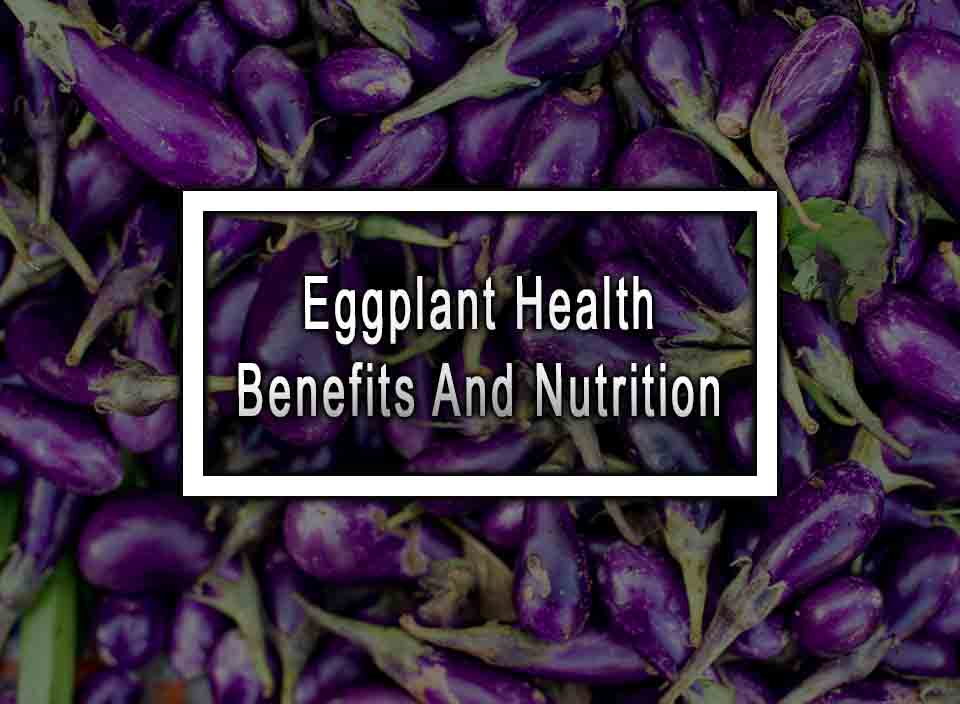Eggplant Health Benefits: Unleashing the Mighty Purple Marvel!
Have you ever underestimated the mighty eggplant? It’s time to double-take on the eggplant health benefits that are waiting to revolutionize your well-being twice as nicely! This purple powerhouse packs a punch with a wealth of nutrients. As we unwrap the eggplant health benefits not once but twice in this nutrient-dense narrative, get ready to embrace the veggie that stands tall as a beacon of health. Whether it’s boosting your brain or defending your heart, the eggplant does it all with a dash of deliciousness. Let’s dig in! Your journey to uncovering the double dose of eggplant health benefits starts now!
Nutrition Facts of Eggplant
Eggplants are low in calories and carbohydrates, which makes them a great food choice for anyone trying to lose weight or maintain a healthy diet. One cup of raw eggplant contains only 20 calories and 5 grams of carbohydrates.
Eggplants are also high in fiber, providing about 2.5 grams of fiber per cup. Fiber is essential for maintaining good digestive health, and it can also help reduce the risk of developing chronic diseases like heart disease, diabetes, and cancer.
Eggplants are also rich in vitamins and minerals, including vitamins C, K, B6, folate, and potassium. Eggplants contain chlorogenic acid, a powerful antioxidant that can help protect against cancer and other diseases.
Health Benefits of Eggplant
1. Promotes Heart Health
Eggplant health benefits are particularly supportive of cardiovascular well-being. The vegetable is a treasure trove of heart-friendly nutrients, including potassium, which aids in maintaining electrolyte balance and blood pressure regulation. Its cholesterol-lowering capabilities, attributed to the presence of soluble fiber, can prevent plaque buildup in arteries, thus warding off coronary artery disease. Additionally, the potent antioxidant nasunin, found in the eggplant’s vibrant purple skin, not only gives it its characteristic color but also protects cell membranes from damage and mitigates the risk of heart attacks and strokes.
2. Supports Weight Loss
The low-caloric yet nutrient-dense nature of eggplants makes them an ideal choice for those seeking to shed extra pounds. Full of water and dietary fiber, they create a feeling of satiety with minimal energy intake, thereby aiding in weight management. Eggplant health benefits shine in any calorie-restricted diet; their bulky texture and versatility can enhance dishes without adding unwanted calories. Moreover, eggplants can keep cravings at bay and prevent overeating, which is crucial for long-term weight-loss success.
3. Helps Control Diabetes
Eggplants are a boon for individuals managing diabetes, as they are rich in fiber yet low in soluble carbohydrates, helping to moderate blood sugar levels and reduce glucose absorption rates. This is critical to preventing the sugar spikes that are harmful to diabetic patients. Further supporting eggplant health benefits for diabetes control, they have a low glycemic index, ensuring that they have a minimal impact on blood sugar when consumed in moderation. Regular inclusion of eggplants in a diabetic-friendly diet can thus play a supportive role in maintaining glycemic balance.
4. Prevents Cancer
Research suggests that the phenolic compounds found in eggplants, such as chlorogenic acid, not only have the potential to act as antioxidants but also as anti-carcinogenic agents. These compounds may inhibit the proliferation of cancer cells and induce apoptosis, thereby contributing to a reduced risk of cancer, particularly in the digestive tract. The fiber in eggplants also promotes the removal of toxins from the body, further strengthening the eggplant’s health benefits in cancer prevention by reducing the exposure of cells to carcinogens.
5. Improves Digestive Health
The high fiber content in eggplants not only contributes to heart and weight health but also plays a significant role in digestive health. As a bulk-forming laxative, the fiber in eggplants helps to regulate bowel movements, thus preventing constipation and maintaining a healthy gut microbiome. An efficient digestive system is crucial for the absorption of nutrients and the elimination of waste. Incorporating eggplants into your diet can support a smooth digestive process and can be part of a strategy to prevent gastrointestinal issues, enhancing overall health and wellness.
Eggplant Health Benefits: Embrace the Purple Majesty’s Gift to Wellness
Eggplant Health Benefits and Nutrition: Eggplants are a versatile and healthy vegetable that offers many health benefits. They are low in calories and carbohydrates, making them a great food choice for anyone trying to lose weight or maintain a healthy weight. Eggplants are also rich in fiber, vitamins, minerals, and antioxidants, making them an ideal food for improving overall health and reducing the risk of developing chronic diseases like heart disease, diabetes, and cancer. Incorporating eggplants into your diet is an easy way to improve your health and enjoy a portion of great-tasting food.
Eggplant Health Benefits FAQs
Here are the most common questions about eggplant health benefits.
1. Is eggplant good for weight loss?
Yes, eggplant is a great tool for weight loss because it is low in calories and high in fiber. It also helps to reduce inflammation in the body, which can lead to weight gain.
2. How can I prepare eggplant for maximum health benefits?
The best way to prepare eggplant is to roast or bake it rather than fry it to avoid adding extra calories and unhealthy fats. You can also eat it raw in salads or dips like baba ghanoush.
3. Can eggplant improve heart health?
Yes, eggplant is rich in antioxidants and nutrients that have been shown to reduce high blood pressure and cholesterol, both of which are risk factors for heart disease.
4. Is eggplant a good source of protein?
Eggplant is not a significant source of protein, but it does contain some amino acids that can help support muscle growth and repair.
5. Are there any risks to eating eggplant?
Eggplant contains a small amount of solanine, which can be toxic in large amounts. However, the levels of solanine in eggplant are generally not high enough to cause harm. Some people may also be allergic to eggplant, so it is important to watch for any adverse reactions.










